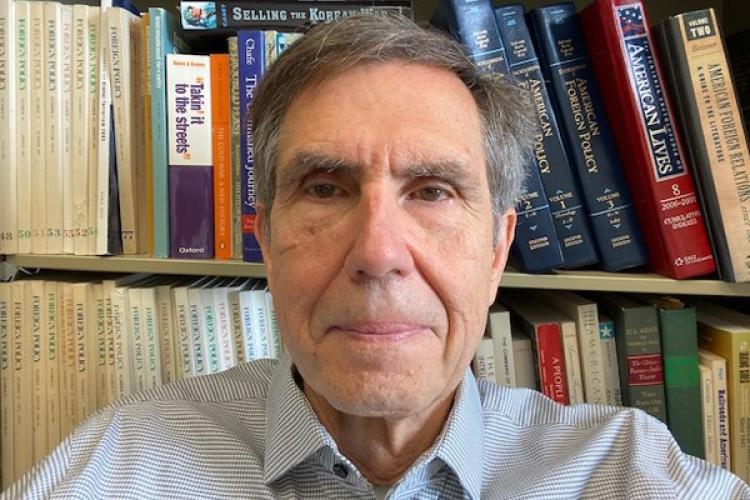
Chester Pach says Reagan speech set stage for 'verifiable reduction in nuclear weapons'

Chester Pach, associate professor of history in the College of Arts and Sciences, published an essay recently on one of Ronald Reagan’s most famous — and controversial — speeches. In that address, Reagan called the Vietnam War “a noble cause.”
Reagan spoke to the annual convention of the Veterans of Foreign Wars in August 1980, when he was running for president.
The essay, “Ronald Reagan’s Noble Causes,” now appears in the Reagan Institute’s Essay Series on Presidential Principles and Beliefs. The series has essays on Reagan’s most memorable speeches, including his inaugural addresses, Berlin Wall speech, and address to the American people after the explosion of the space shuttle Challenger.
In the essay, Pach argues that Reagan’s sensational description of the Vietnam War diverted attention from the main theme of the speech — national security. At the time Reagan spoke, Cold War tensions were high because the Soviet Union had invaded Afghanistan.
Pach writes that Reagan was “a fierce Cold Warrior, but his speech provided a new vision for peace.” Reagan called for “an honest, verifiable reduction in nuclear weapons” by both the United States and the Soviet Union so that “neither of us represented a threat to the other.”
“That was the most consequential line,” Pach explains, “because it guided Reagan’s approach to arms negotiations as president and led to an unprecedented achievement—the United States and the Soviet Union agreeing to destroy part of their nuclear arsenals” in the Intermediate-Range Nuclear Forces Treaty of 1987.
The contributors to the Essay Series on Presidential Principles and Beliefs are prominent historians as well as current and former government officials, such as former Secretary of Defense Leon Panetta, retired General H. R. McMaster, and former Governor and Ambassador to the United Nations Nikki Haley.
Pach said he was “honored” to have his essay in a series with such distinguished contributors.
